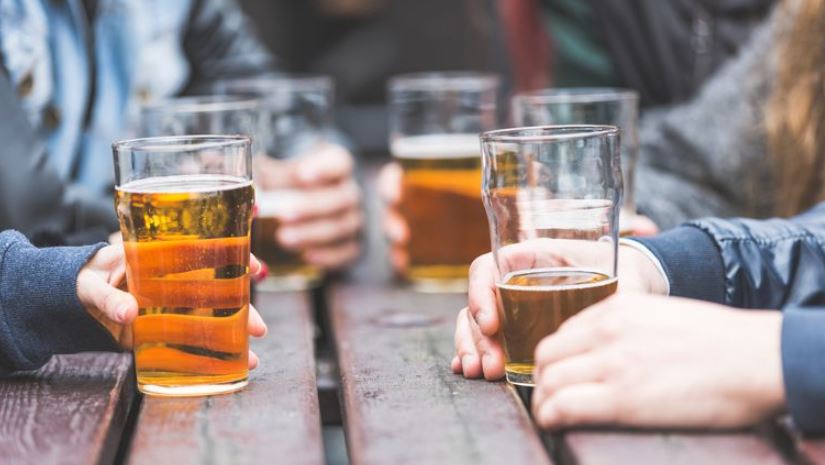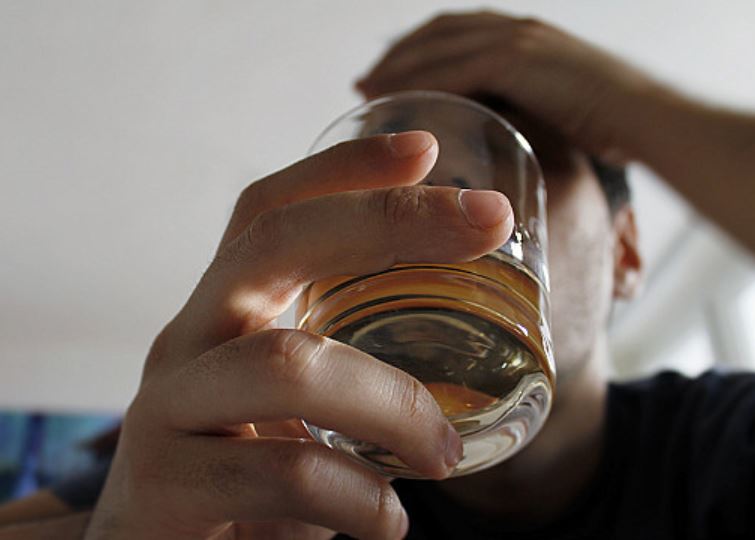As we age, our bodies undergo various changes that can significantly impact how we process and handle alcohol. While some of these effects are purely physiological, others are influenced by lifestyle choices and overall health.
In this article, we will explore the reasons why drinking alcohol tends to make you feel worse as you get older.
Understanding the aging process

Before delving into the specific reasons why alcohol affects us differently as we age, it's essential to understand the natural aging process that occurs within our bodies.
As we get older, our metabolism tends to slow down, decreasing the efficiency with which our bodies process and eliminating substances like alcohol.
Changes in liver function
The liver plays a crucial role in breaking down alcohol and removing it from the body. However, with age, the liver's ability to metabolize alcohol declines.
This leads to a slower processing time, meaning that alcohol remains in the bloodstream for longer periods. Consequently, you may experience prolonged intoxication and a higher blood alcohol concentration, even after consuming relatively small amounts of alcohol.

Your body's increased sensitivity to alcohol
Another reason why drinking alcohol can make you feel worse as you get older is increased sensitivity to its effects.
With age, the body's tolerance for alcohol diminishes, making it easier to experience the negative consequences associated with its consumption. The same amount of alcohol that once had little impact on you can now result in significant discomfort, including hangovers, headaches, and even more severe symptoms.
Dehydration and electrolyte imbalance
Dehydration is a common side effect of alcohol consumption, as it has a diuretic effect, causing increased urination. When we're young, our bodies can typically compensate for this fluid loss more effectively. However, our ability to retain and restore proper hydration levels decreases as we age.
Additionally, alcohol can disrupt the balance of electrolytes in the body, leading to further dehydration, muscle cramps, and fatigue.
Decreased muscle mass and increased fat content
As we age, our body composition changes, with a gradual loss of muscle mass and increased body fat. This shift in composition can impact alcohol metabolism since muscle tissue contains more water and thus helps dilute alcohol.
With less muscle mass to absorb and dilute alcohol, older individuals may experience higher blood alcohol concentrations, contributing to intensified and prolonged effects.

While age-related physiological changes undoubtedly play a significant role in how alcohol affects us, our lifestyle also influences the experience. Here are some lifestyle factors that can exacerbate the negative effects of alcohol as we get older:
It is not uncommon for older adults to be on various medications to manage health conditions. Some medications can interact negatively with alcohol, intensifying its effects or causing adverse reactions. It is crucial to consult with a healthcare professional or pharmacist regarding potential interactions between your medications and alcohol before consuming them together.
Pre-existing health conditions
As we age, the likelihood of having pre-existing health conditions increases. Certain conditions, such as liver disease, gastrointestinal disorders, heart problems, and diabetes, can make it more challenging for the body to process alcohol efficiently.
Alcohol consumption can exacerbate symptoms or even pose severe risks for individuals with these conditions.
Slower recovery time

Recovery time after a night of drinking tends to be longer as we age. While young individuals may wake up relatively unaffected or bounce back quickly after a night of indulgence, older adults may experience prolonged hangovers and heightened discomfort the following day. The body's ability to recover from the toxic effects of alcohol diminishes with age, making the morning-after experience increasingly unpleasant.
Changes in sleep patterns
Age-related changes in sleep patterns can also amplify the negative impact of alcohol. Alcohol has sedative effects and can initially help you fall asleep; however, it disrupts the quality of your sleep throughout the night.
As we age, our sleep patterns become more delicate, and alcohol-induced disruptions can lead to decreased sleep quality and increased fatigue the next day.
Lifestyle factors and pre-existing health conditions can exacerbate alcohol's negative effects. To minimize these effects and enjoy alcohol responsibly as we age, it is crucial to understand the changes our bodies undergo and make informed choices about our alcohol consumption.






